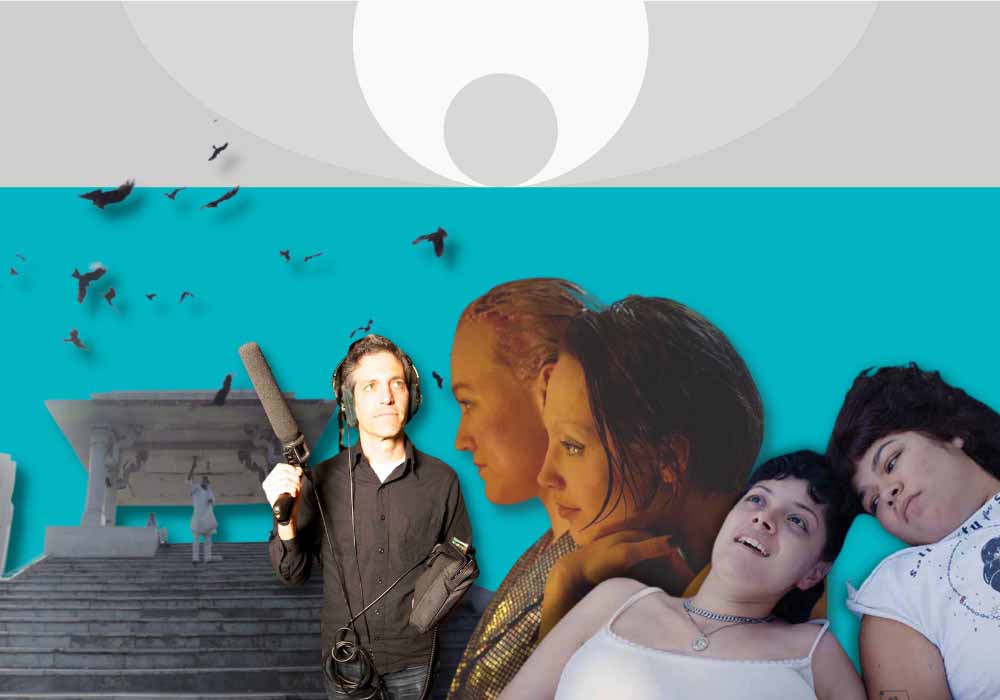Violeta Salama’s warm and sensitive feature debut, Alegría, is exactly the kind of film you look for at a Jewish Film Festival: a travelogue and a story of culture, religion, and family.
The Toronto Jewish Film Festival will be screening films online until June 26, available across Ontario, including Seventh Row favourites A Radiant Girl and Tantura. You can purchase tickets on their website.

Discover one film you didn’t know you needed:
Not in the zeitgeist. Not pushed by streamers.
But still easy to find — and worth sitting with.
And a guide to help you do just that.
Violeta Salama’s warm and sensitive feature debut, Alegría, is exactly the kind of film you look for at a Jewish Film Festival: one that introduces you to a little-known refuge for Jews fleeing persecution, depicts Jewish life there today, and wrestles with problematic patriarchal traditions which also knit together a diasporic community. The film also serves as a kind of travelogue — an introduction to the autonomous Spanish city of Melilla on the north coast of Africa, lensed beautifully by Pau Esteve Birba. The specificity to place coupled with the film’s thoughtfulness about multicultural and familial relationships are likely to give Alegría broader appeal.
At the centre of this story is Alegría (the wonderful Cecilia Suárez), a doctor who has returned to her family home in Melilla where she grew up, but has spent her adult life as a single parent in Mexico. Not only did she flee the place, but everything it represented: her family, her religion, and her culture, which she found too oppressive. But the loss of them has made her unhappy and unmoored. During her vacation from her new life in her old home town, a family Orthodox wedding is happening for her niece Yael (Laia Manznares), and her relatives from around the world descend on her, starting out as an annoyance but becoming an opportunity to reconcile with her roots. She may not want these traditions for herself, but she comes to understand the value they have in her community.
Alegría is a wonderfully prickly character: rich and esteemed enough to get away with not just a certain level of independence but also a flagrant disregard for the feelings of others. She practically throws repeated temper tantrums every time she is asked to assist with the wedding by her family. When pressed, she does the very Jewish thing of trying to break the rules in order to adhere to them: she hangs the Mezuzahs herself (only men are allowed to do it), not with the traditional nails but with glue; she forgets to book the mikvah for her niece and finds a (admittedly loving) hack to still make it happen at the last minute. But she regularly discounts the feelings and concerns of her hired help, Dunia (Sarah Perles), a young Muslim woman whose future Alegría puts in jeapordy by ignoring Dunia’s concerns when they’re inconvenient to Alegría’s purposes.
The wedding stirs up family and religious tensions. Alegría forces Yael to acknowledge the oppressive nature of a Jewish Orthodox marriage, leading Yael to her own quiet rebellion. But Yael, Yael’s instended, and their family also force Alegría to acknowledge that there’s a place for modernity and warmth within these seemingly outdated traditions. Yael’s mother is conspicuously absent during much of the preparations, which puts her and Alegría in a surrogate mother-daughter relationship, made all the more painful by the fact that Alegría is estranged from her own daughter.
Much of the power of Alegría is in Suárez’s mighty performance that Salama allows the time to play out. There’s a wonderful scene at the airport where Alegría is meeting her family to welcome them for the wedding. She’s expecting her daughter, and the scene plays out in an extended closeup on her, her face showing us all the apprehension and excitement that this reunion many years in the waiting holds. Various family members pop into the frame to kiss Alegría hello or hug her, but never the one she wants. We and she simultaneously realise that her daughter just simply isn’t showing up, and Suárez quietly registers the sheer devastation of this mixed with the pride of not wanting to admit it to her family.
Alegría is also about the multicultural city of Melilla, where Jews, Muslims, and Christians mix and mingle and come together to make the wedding happen. There are cultural misunderstandings, but for the most part, there’s just solidarity between the women, all of whom are hemmed in by various factors, like patriarchy and citizenship. Salama takes us through the streets of this 12km^2 town and reveals the story of the border tensions at Morocco simply because the characters have to travel there for the wedding preparations. The history of the city is in the backdrop at all times, which makes the film work as a kind of travelogue, an introduction to a rarely seen part of the world.
You could be missing out on opportunities to watch great films like Alegría at virtual cinemas, VOD, and festivals.
Subscribe to the Seventh Row newsletter to stay in the know.
Subscribers to our newsletter get emails with great new streaming options in Canada, the US, and the UK.
Click here to subscribe to the Seventh Row newsletter.




